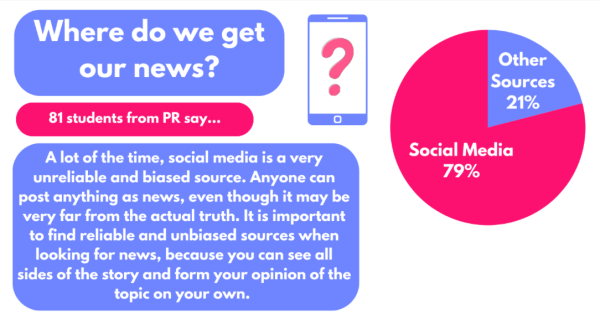The First Year of AP Seminar
AP Seminar is a new English class offered for sophomores and juniors. Taught by Humanities Division Leader Mr. Gimm, who teaches one section, and English teacher Mrs. Fuerholzer, who teaches three, this fast-paced, research-oriented class is, for some students, the challenge they need, while others have found the workload is swallowing them whole.
With this being the first year the class was offered, several AP Seminar students felt like they weren’t exactly sure what they were getting into.
In fact, sophomore Jack Lotito believes many students were given a skewed view, being told that although research would be a large part of it, they would be discussing current events and having debates.
This is not at all what this class is. Again, “having debates” is not at all an accurate description of the class.
The College Board website tells students they will “explore topics such as innovation or freedom from multiple perspectives,” and “work independently and with a team to research a topic, develop a written report and deliver a presentation.”
In fact, the majority of the year is spent working toward the AP test, which is a series of research papers and presentations.
Mr. Gimm believes the course is especially challenging for this year’s students because “there are no older brothers or sisters, or friends who have gone through this to ask for advice” and says AP Seminar is “really driven by skills.”
Both Mr. Gimm and Mrs. Fuerholzer have found it difficult to teach a class that has never been taught in the district before. Mrs. Fuerholzer mentioned that “teaching skills to College Board’s rubric…makes it a little bit more difficult because their terms are often interchangeable.”
Jack Lotito cautions future students to “get the facts before you commit,” and though he feels he was misled, he tells students “don’t be scared by [AP Seminar] because it can be a fulfilling class.”
So then what should students know before taking AP Seminar?
It’s designed to be a rigorous course that tests students’ ability to comprehend advanced material and then articulate their thoughts on the matter. How does that look and feel to the students experiencing it?
Megan Anderson, from the 3rd hour section, notes that the class includes “reading informative papers and lengthy academic studies, then pulling out information and using it to answer a research question in presentation and paper form.”
Mrs. Fuerholzer uses an analogy of a puzzle to describe the research in the class, saying, “it’s all about breaking apart your sources to find the usable evidence, similar to taking apart a jigsaw puzzle and putting it back together without the outside pieces.”
Patrick Nasta from 6th hour mentions that the class can also teach skills students otherwise wouldn’t obtain, for example, “a lot of useful argumentative writing strategies.”
Nicolette Schlup has learned that “AP Seminar projects are not ones you can leave to the last night. They take lots of hard work, but the payoff is worth it. AP Seminar will really test your ability to handle stress.”
Alli Clark, from Mrs. Fuerholzer’s 6th hour class also mentions stress in her description of the class. “It can be stressful, but as long as you’re on top of your assignments, it’s a really fun class.”
Sarah Reitmeister also commented on what kind of stress the class involves, sharing that her “stress levels have almost tripled since freshman year,” and “AP Seminar is the only class I consistently get homework for every night.”
But this stress isn’t all bad, because Sarah mentioned that the high stress levels AP Seminar entails has helped her learn how to effectively handle her stress and develop a healthier attitude about school work.
This class isn’t for everyone. Depending on your academic skill set and your dedication to your school work, AP Seminar may or may not be beneficial to you.
Elly Flemming, a student in Mrs. Fuerholzer’s 8th hour class, cautions students, if “you’re just taking it to get out of sophomore [honors] English, you won’t do well.”
Mrs. Fuerholzer herself agrees, saying that “students sometimes want the easy way out, [and] this is not the easy way out. Many would rather take a test than spend hours at home doing research.”
Elly believes that “if you are truly considering anything in the research field,” then this class will be beneficial for you.
Sarah only recommends AP Seminar to “someone who plans to get a master’s degree in their field, someone who wants to go into a research field, or someone who loves team projects or research.”
One student in Mrs. Fuerholzer’s 8th hour class, AJ Weber, suggests avoiding the class altogether, stating “Don’t take [AP Seminar]. I mean, it’s fun, but it’s really hard.”
But Emma Jewell, from Mr. Gimm’s 3rd hour class, believes students shouldn’t be frightened of it. “If you use your time wisely, you will find that the workload of this class is manageable.”
Mr. Gimm thinks students will gain “a patient approach to their learning.” He also said that students need to understand that “some work takes time… and can only be done a little bit at a time.”
Students in both teachers’ classes agree that the class is worthwhile if you can put in the effort and be fully committed.
In the end, AP Seminar does has a very unique quality that separates it from other traditional English courses: with the classes not switching at all at the semester, your class, specifically your research group, becomes an inseparable group of friends. The shared hardships and memories will last a lifetime, and in that regard, AP Seminar is absolutely worthwhile.






Hunter Fredrick • Feb 29, 2016 at 10:54 am
AP seminar, a class offered to sophomores juniors and seniors, is a class for research and presentation. Most students feel this class is hard; however, some students can handle the stress levels given off by the class. Most of the stress handling students say it is not that bad. I feel that this class is not as stressful as you think. I can understand why people who do activities after school would say that the homework is stressful, but it’s not just the class. People have to limit the activities and select a time to get it done. If I were a student who wanted to become a researcher than I would highly recommend it.
Hunter Fredrick • Feb 29, 2016 at 11:03 am
The last sentence should be
If I were a student who wanted to be a researcher, then I would highly recommend it.
Zach Gimm • Feb 25, 2016 at 8:58 am
Thanks for writing such a representative article. I think you’ve done a really good job of providing perspectives that can inform people about this class!